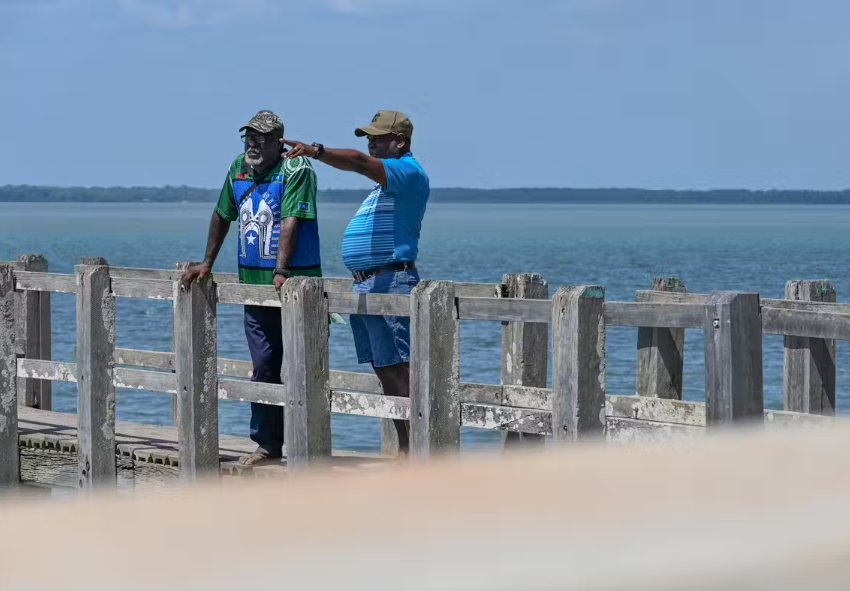A bleak future in the Torres Strait and a test for global climate justice
A recent decision by the Federal Court of Australia raises more questions than answers about the future of climate justice – not only in this country, but globally.
The case, brought by Torres Strait Islander leaders Uncle Pabai Pabai and Uncle Paul Kabai, sought to hold the Australian Government to account for its failure to protect their communities from the impacts of climate change. In his decision, Justice Michael Wigney acknowledged the devastating threat that rising seas and more extreme weather pose to the Torres Strait Islands. He even said the future for their communities could be "bleak" without urgent action.
But still, the Court declined to impose any legal duty on the government to act. Justice Wigney ruled that decisions about emissions targets and climate policy are matters for Parliament.
It raises a confronting question: if a court recognises the harm caused by climate change, but says it can’t compel a government to act, what does that mean for frontline communities? Do they just have to put up with it?
This case is part of a growing global movement using the law to force governments to take climate change seriously. In the Netherlands in 2020, the courts took a different view. The Dutch Supreme Court upheld a ruling that found the government had a legal duty to protect its citizens from climate risks and ordered emissions cuts in line with scientific advice. The decision was hailed as a breakthrough in climate litigation – a signal that governments could be held accountable for climate inaction.
So why the different outcome in Australia? Is it a question of legal frameworks, or of whose voices are heard? Would the outcome have been different if the plaintiffs had come from Sydney rather than the Torres Strait? If the case had focused on coastal property threatened by offshore gas drilling or longer bushfire seasons?
These are uncomfortable questions. But they matter.
And they’re not unique to Australia. Around the world, people are turning to the courts for justice because political systems are failing them. They’re asking whether governments have a legal obligation to protect their people, and future generations, from the climate crisis.
This is where the International Court of Justice (ICJ) comes in.
Last year, Vanuatu led a successful push for the United Nations to ask the ICJ for an Advisory Opinion on climate change. The request, backed by more than 130 countries, asks the world’s highest court to clarify what international law requires of nations in responding to climate change – including their responsibilities to protect human rights and vulnerable communities.
The ICJ opinion won’t be legally binding. But it could provide powerful guidance to national courts and governments. And it could help ensure that climate justice doesn’t depend on where you live, or how your legal system is structured.
The Torres Strait decision underscores why this matters. We now have a situation where a court acknowledges that a community is facing existential harm from climate change, but says it's powerless to act. Meanwhile, courts in other parts of the world have stepped in to compel governments to do more.
This patchwork approach is not sustainable. It's a cliche but the climate crisis is a global problem and requires a global solution.
The ICJ’s Advisory Opinion won’t solve the climate crisis. But it could help establish the foundations of a shared legal understanding. One that helps ensure those most impacted are not left without recourse. One that begins to treat climate harm not just as a policy challenge, but a matter of justice.
Communities can't be left to fight this battle alone, one courtroom at a time.

